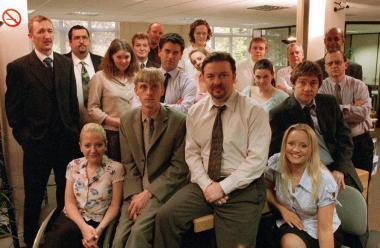Many companies engaged in the application of behavioural science on their offer to consumers, also apply the same insights internally too, thinking about how they can actively ‘dial up’ and ‘dial down’ cognitive biases in their everyday work to help people to make better decisions, carry out more accurate, unbiased analysis and become more efficient.
New thinking from top behavioural scientist Cass Sunstein has also added to this discussion. His book 'Wiser', published in 2015, analyses groupthink in decision-making, asking two important questions:
- Why groups fail due to effects of groupthink: there is no evidence that groups eliminate the individual cognitive biases we all suffer from to some degree and they may even amplify them; and
- How groups can reduce groupthink, make themselves smarter and ultimately succeed in making better decisions.
One of the principal failures he identifies in groups is what he calls 'happy talk' - when group members say that all is going well and likely to go even better - that there is nothing to worry about. These members silence themselves, not reporting what they know, because they want to please rather than feed in valuable information or don’t want to cause anxiety or disrupt the status quo with contrary suggestions. He finds that 'happy talk' is a pervasive source of group failures because 'no boats are rocked' and it breeds a culture of overconfidence.
His suggested strategies to reduce groupthink and 'happy talk' include:
-
Building a critical thinking culture: Rather than groups aiming to 'get along' and keeping any points of difference hush hush, Sunstein shows how groups can be primed or informed that the main task or goal is critical thinking. Experiments have shown that priming people with a 'critical thinking' association made them much more likely to disclose what they knew rather than keeping quiet, going along with social norms and trying to 'get along', leading to more productive and effective meetings.
Sunstein highlights several successful organisations whose board members are willing to fight with one another, such as the CIA, the US Department of Justice and The Vanguard Group. One simple motto for prompting critical thinking might be:
"Now tell me something I need to know, even if I might not want to hear it."
- Gather viewpoints privately: Sunstein also draws attention to President Roosevelt’s unique decision-making process as an effective anti-groupthink strategy. He was well-known for ensuring he heard all viewpoints before making a decision, making a point of speaking privately with each adviser. During these one-on-one discussions he would give the impression that he agreed with the adviser’s viewpoint, in order to encourage them and give them the confidence to elaborate more on their opinion and any relevant information. Only after this thorough and balanced process would he make his final decision.
At The Behavioural Architects, on large strategic projects we try to combat ‘happy talk’ by selecting one team member whose job it is to play devil’s advocate, also known as ‘Red teaming’. Whatever the consensus might be, it’s their job to suggest ways in which we might want to think about it differently. Other practices include asking people to send in or write down their individual private thoughts before a group discussion. This can be with internal teams, but also with respondent groups in our research – and can help to make someone more committed to their viewpoint and to sticking with what they believe.
We all need to recognise happy talk exists and where it can create suboptimal decision-making or actions. But the great news is once you are aware of it, it can be combatted and certainly lessened with carefully designed measures like those discussed above.
Read more from The Behavioural Architects in our Clubhouse.
Newsletter
Enjoy this? Get more.
Our monthly newsletter, The Edit, curates the very best of our latest content including articles, podcasts, video.
Become a member
Not a member yet?
Now it's time for you and your team to get involved. Get access to world-class events, exclusive publications, professional development, partner discounts and the chance to grow your network.

